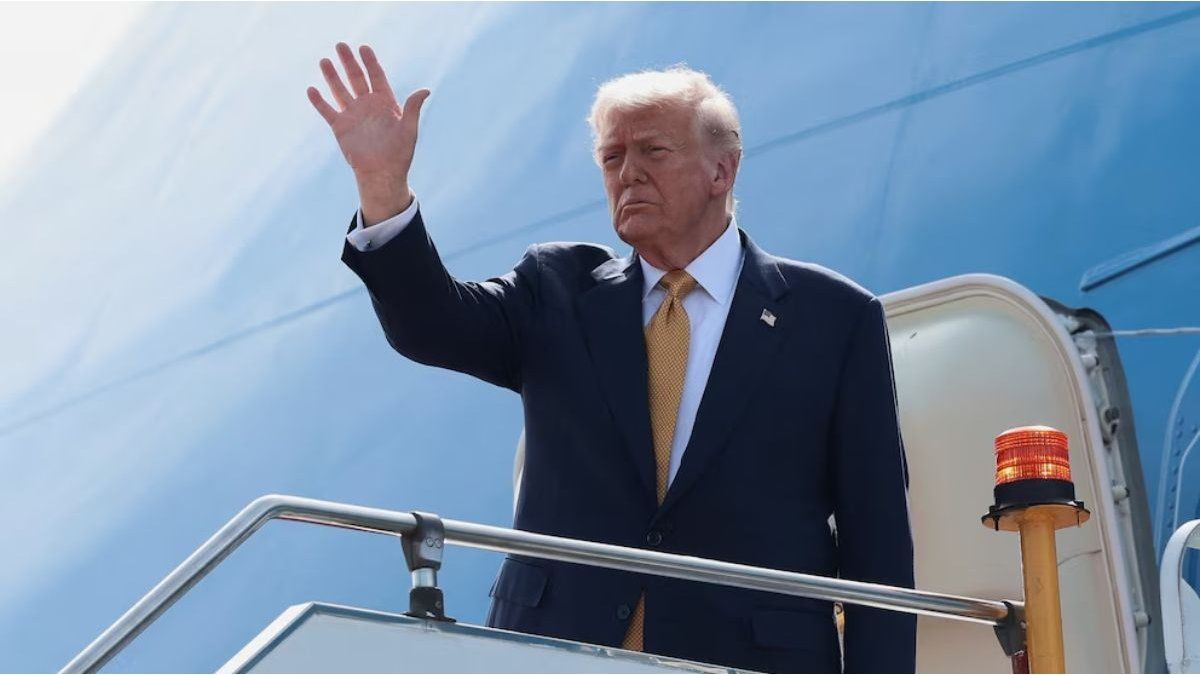The German economy is in an economic downturn. Criticism of the federal government is increasing. Is the Chancellor underestimating the seriousness of the situation?
Business associations in Germany are on a collision course with Chancellor Olaf Scholz (SPD). Industry President Siegfried Russwurm accuses Scholz of apparently underestimating the seriousness of the situation in view of the economic downturn. The President of the Federation of German Industries told the “Süddeutsche Zeitung” with a view to the previous government of the traffic light coalition and the business location: “It was two lost years – even if some of the directions were set incorrectly beforehand.”
Other business associations are also dissatisfied. DIHK President Peter Adrian told the German Press Agency on Wednesday: “The loss of trust in politicians among companies is enormous.”
The economic situation
The German economy is not moving. Recently, leading economic research institutes significantly lowered their growth expectations for this year. They only expect growth of 0.1 percent – that means stagnation. There are headwinds for the economy from home and abroad, they explained. “The economy in Germany is ailing.” In 2023, economic output even fell by 0.3 percent.
The institute’s forecast stated that “ongoing uncertainty” about economic policy was weighing on corporate investment. Marie-Christine Ostermann, President of the Association of Family Businesses, said on Wednesday that location decisions were made against Germany and against Europe every day. “Only 25 percent of internationally active family businesses are willing to invest in Germany because the location conditions are too poor.”
The criticism of the economy
Business associations have been expressing dissatisfaction with the federal government’s course in economic and financial policy for a long time. At Industry Day last June, Russwurm made it clear that the federal government must now deliver in order to prevent companies from moving abroad. The country is facing a “mountain” of growing challenges.
Now the tone seems to be tightening. Russwurm told the “Süddeutsche Zeitung” that the BDI speaks regularly with Economics Minister Robert Habeck (Greens) and Finance Minister Christian Lindner (FDP). “We often hear the quote from the Chancellor recently: ‘The lawsuit is the merchant’s song.’ This can also be used to dismiss our analyses, but it shows that the Chancellor’s office is apparently underestimating the seriousness of the situation.”
Before the last meeting in Munich at the beginning of March, the four leading business associations sent Scholz a paper with ten concrete reform ideas, said Russwurm. “Answer from the Chancellery: none so far. Or take the bureaucracy relief law: 442 concrete proposals were made for this. The government has adopted eleven.”
The associations are calling for internationally competitive electricity prices, faster planning and approval procedures, less bureaucracy and tax reform. Scholz made it clear in Munich that he saw no financial scope for comprehensive tax cuts. He warned against badmouthing Germany as a location. “Of course it doesn’t help if a lot of lobbyists and political entrepreneurs worsen the mood in the country, because then people keep their money in their savings accounts and don’t invest,” he said.
The Chancellor repeatedly emphasizes billion-dollar investments by foreign companies in Germany. The government sometimes massively subsidizes such settlements. On the plus side, Scholz also sees more speed in the expansion of renewable energies or easier immigration for foreign skilled workers.
Associations are calling for reforms
Adrian said that there was a clear gap between the “Germany pace” often invoked by the Chancellor and the reality experienced by companies on a daily basis. “In this situation, we urgently need clear improvements in the economic framework so that the German economy can return to a growth path as quickly as possible. And that starts with acknowledging reality. The Chancellor and his cabinet should show companies that they have understood what situation the economy is in and finally turn on the acceleration turbo.”
Christoph Ahlhaus, Federal Managing Director of the BVMW medium-sized business association, said: “Despite all the justified criticism, we consistently got the impression that the traffic light has arrived and that significantly more needs to be done to get Germany back on track.” But there is still a lot of room for improvement. “Therefore our urgent appeal to the government and opposition, but also to business and society: everyone pull together and let’s put our country back in order together.” It is of crucial importance to the Federal Chancellor to successfully advance this with the necessary empathy.
Ostermann said the situation was very serious. The economy needs relief. Not only does Economics Minister Habeck have a duty here, but also the Chancellor, given the task facing society as a whole.
The federal government’s plans
In fact, Habeck and Lindner look at the situation of companies and German competitiveness differently than Scholz. Both see that the economic engine is sputtering and have promised a remedy – but they have very different ideas for repairs. Habeck wants a “reform booster” with, among other things, tax discounts for green technologies. Lindner, on the other hand, speaks of an “economic turnaround” with a reduction in bureaucracy and tax measures for everyone. Ultimately, corporate taxes must “as soon as possible go from around 30 percent effective burden down towards 25 percent,” said the FDP leader of the “Rheinische Post”.
Because this will certainly cost money, a common growth concept from the traffic light government should be incorporated into the federal budget for 2025. This is due to be approved by the cabinet at the beginning of July – but there is actually no scope for additional requests. Instead, even without relief for the economy, there is already a billion-dollar gap.
Source: Stern




